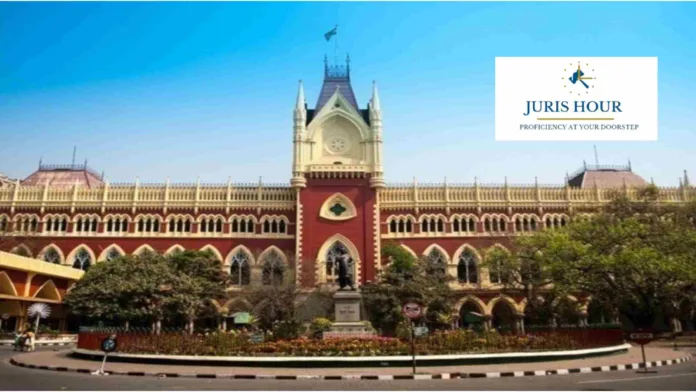This article is written by Unnati V. Chhangani, a Fourth Year Law Student, Jai Narayan Vyas University, Jodhpur.
The Calcutta High Court held that once judgement is pronounced judgement, Court has no jurisdiction to alter it.
The Single bench of Justice Prasenjit Biswas observed that, the powers of review cannot be exercised as an inherent power nor can an appellate power can be exercised in the guise of power of review.
The Petitioner had approached the doors of court to overturn the prior order through review mechanism. The Case is all about the dispute over the possession of a suit property.
The issue before the court is of examining the grounds of review in accordance with Rule 1 of order 47, which enunciates that when an order or decree is needed to be reviewed either there should be a discovery of new and important matter or evidence which after the exercise of due diligence was not within the knowledge of the petitioner or was unable to produce it or most importantly there must be an apparent error on the face of the record.
The counsel of the Petitioner contended that the order under review didn’t took notice of the main issue in the revesional application, which challenged the dismissal of setting aside an ex-parte order due to the absence of summons served to the petitioners/defendants.
The Counsel for the Respondent submitted that the power of the Civil Court to review the judgment and order is very limited and the review petition cannot be entertained on the ground that the decision was erroneous on merits unless there is error apparent on the face of the record.
The court observed that to acknowledge the scope of Review the court first and foremost needs to understand section 114 of CPC holistically inter alia with order 47 Rule 1.
It was further observed by the court that “From the bare reading of Section 114 C.P.C., it appears that the said substantive power of review under Section 114 CPC has not laid down any condition as the condition precedent in exercise of power of review nor the said Section imposed any prohibition on the Court for exercising its power to review its decision. However, an order can be reviewed by a Court only on the prescribed grounds mentioned in Order 47 Rule 1 CPC. An application for review is more restricted than that of an appeal and the Court of review has limited jurisdiction as to the definite limit mentioned in Order 47 Rule 1 CPC itself.”
The court took precedence of Sanjay Kumar Agarwal-vs.- State Tax Officer(1) & Anr. Which highlights that A judgment is open to review inter alia if there is a mistake or an error apparent on the face of the record. Moreover a judgment pronounced by the Court is final, and departure from that principle is justified only when circumstances of a substantial and compelling character make it necessary to do so. Furthermore an error which is not self-evident and has to be detected by a process of reasoning, can hardly be said to be an error apparent on the face of record justifying the court to exercise its power of review.
To elucidate the concept of “ apparent error on the face of record” the court referred to Para 22 of State of West Bengal and Ors.-vs. Kamal Sengupta and Ors. which states:
“The term “mistake or error apparent” by its very connotation signifies an error which is evident per se from the record of the case and does not require detailed examination, scrutiny and elucidation either of the facts or the legal position. If an error is not self-evident and detection thereof requires long debate and process of reasoning, it cannot be treated as an error apparent on the face of the record for the purpose of Order 47 Rule 1 CPC or Section 22(3)(f) of the Act. To put it differently an order or decision or judgment cannot be corrected merely because it is erroneous in law or on the ground that a different view could have been taken by the court/tribunal on a point of fact or law. In any case, while exercising the power of review, the court/tribunal concerned cannot sit in appeal over its judgment/decision.”
The court ruled that the review is an exception to the Rule that once the court has pronounced the judgement and signed it, it has no jurisdiction to alter it and it ceases to have control over it and indeed it has a narrow path.
Therefore, keeping in mind the principles of review, the court dismissed the application as no error on face of record was seen by the court.
Case Details
Case Title: Samiuzzaman Khan & Ors. Versus Baijnath Singh
Citation: RVW 311 of 2024 with CAN 1 of 2024 In C.O. No. 1048 of 2015
Counsel for the Petitioner: Indrajit Chatterjee.
Counsel for the Respondent: Debasis Sur, Hare Krishna Halder, Mrinmoy Chatterjee
Read More: Finance Minister Holds Meetings With Business Leaders To Go Over GST 2.0 Change Plan

